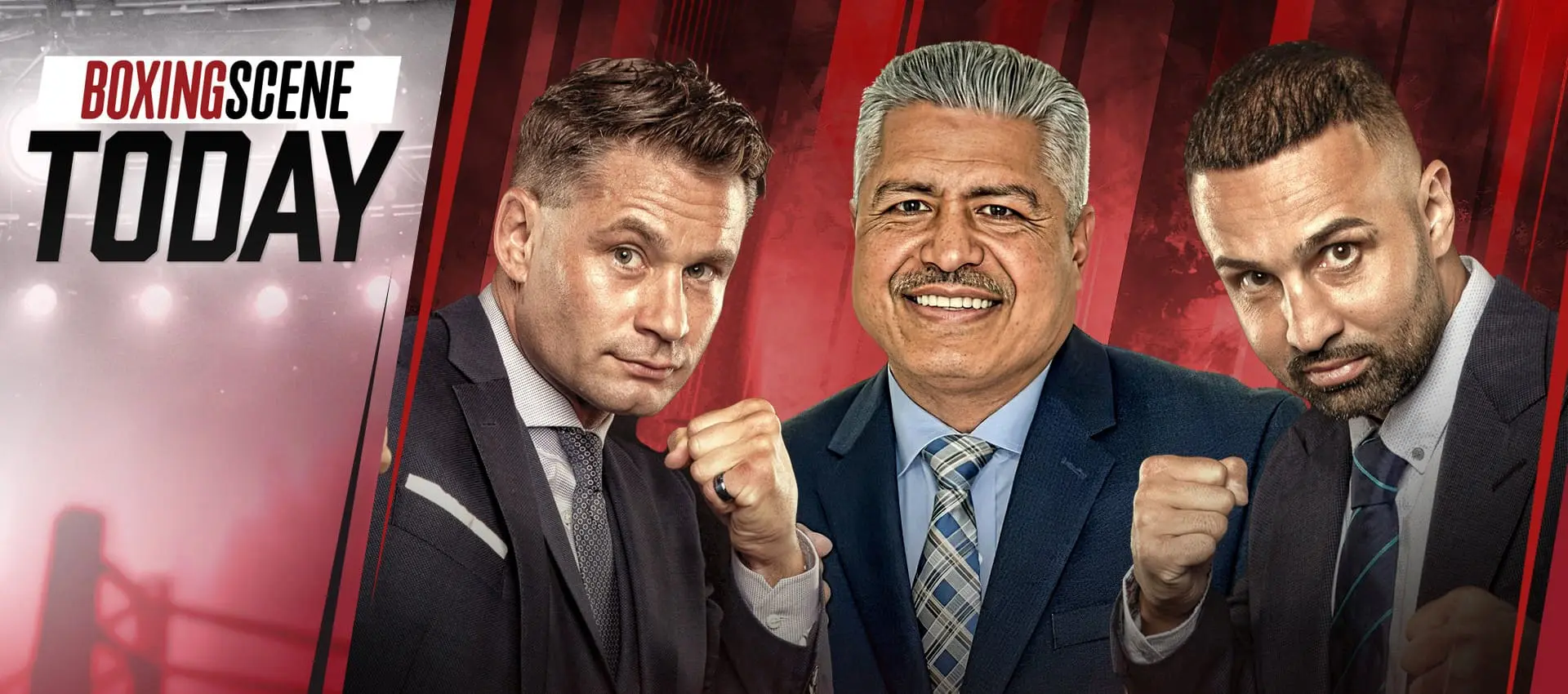
Saturday | Oct 11, 2025 | 8:00 PM EST
Jaron Ennis vs Uisma Lima
Alexis Barriere vs Guido Vianello
DAZNPhiladelphia, Pennsylvania

Saturday | Oct 25, 2025 | 1:00 PM EST
Joseph Parker vs Fabio Wardley
DAZNLondon, United Kingdom

Friday | Nov 7, 2025 | 12:00 AM EST
Nicklaus Flaz vs Delante Johnson
Dominic Valle vs Miguel Angel Torres Nunez
ProBox TVLakeland, Florida
'BoxingScene Today'Talk Show
Pauli, Algieri, and Coach Garcia breakdown today's top stories

Upcoming episode - coming soon
Boxing Interviews
Interviews with boxing biggest stars

Nathaniel Collins targeting Stephen Fulton and Nick Ball
Oct 6, 2025 |

'I WANT TO FIGHT ITAUMA' Richard Torrez wants a big fight in the UK
Sep 17, 2025 |

'ME AND ITAUMA IS AN AWESOME FIGHT' Teremoana Jr. talks Moses Itauma matchup down the line
Aug 28, 2025 |

Gabriela Fundora talks family bond with brother Sebastian Fundora
Aug 28, 2025 |






